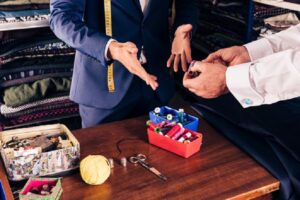What Managers and Auditors Need to Know About Corporate Fraud Investigation Netherlands
Introduction
Corporate fraud is a significant concern for businesses worldwide, posing severe financial and reputational risks. The Netherlands, known for its robust business environment, is not immune to these types of scams incorporate. As a manager or auditor, it is quite important to be well-versed in corporate fraud investigation techniques to safeguard your organization’s interests. This guide aims to provide comprehensive insights into scam detection in corporate, including key challenges, regulatory frameworks, investigative strategies, and preventive measures.
I. Understanding Corporate Fraud
1.1 Definition of Corporate Fraud
Deceptions in corporate refer to any illegal activity committed by individuals within an organization to deceive shareholders, investors, or other stakeholders. It can take various forms, including financial statement manipulation, embezzlement, bribery, insider trading, and money laundering.
1.2 Types of Corporate Fraud:
- Asset Misappropriation: Asset misappropriation refers to the theft or misuse of a company’s funds or assets by employees or third parties. Common examples include fraudulent billing schemes, payroll fraud, and inventory theft.
- Financial Statement Fraud: Financial statement scam involves manipulating financial statements to deceive investors, lenders, and other stakeholders. This type of deception can include inflating revenues, understating expenses, or overstating assets.
- Corruption: Corruption encompasses acts of bribery, kickbacks, or illegal payments made to influence business decisions or gain undue advantages. It can involve employees, vendors, or even high-ranking executives.
1.3 Impact of Corporate Fraud
It can have severe consequences for an organization. It erodes trust among stakeholders, damages the company’s reputation, decreases stock value, and can even lead to bankruptcy. Additionally, the legal and regulatory penalties for these swindles can be substantial, including fines, imprisonment, and the dissolution of the company.
II. Identifying Red Flags
2.1 Unusual Financial Trends
Managers and auditors should closely monitor financial statements for any irregularities or inconsistencies. Unexplained changes in revenue, sudden increases in expenses, or unaccounted-for discrepancies can be indicators of potential hoaxes.
2.2 Weak Internal Controls
A lack of robust internal controls increases the risk of fraudulent activities. Inadequate segregation of duties, poor oversight, and a failure to implement control mechanisms can create an environment conducive to scams.
2.3 Unethical Conduct
Observing unethical behavior among employees, such as a disregard for ethical guidelines, questionable business practices, or conflicts of interest, should raise concerns and prompt further investigation.
III. Conducting a Corporate Fraud Investigation
3.1 Establish a Team
Form a dedicated team comprising individuals with expertise in auditing, accounting, law enforcement, and technology. This interdisciplinary approach ensures a comprehensive analysis from various angles.
3.2 Preserve Evidence
Securing and preserving evidence is crucial for a successful investigation. Safeguard relevant documents, financial records, computer files, and any other potential evidence that might be tampered with or destroyed.
3.3 Conduct Interviews
Interview relevant individuals, including employees, executives, and witnesses, to gather information and testimonies. Conduct interviews in a structured manner, documenting all conversations, and maintaining confidentiality when necessary.
3.4 Engage Forensic Accountants
Enlist the expertise of forensic accountants to analyze financial records, trace transactions, identify irregularities, and quantify the financial impact of the scams. They can provide valuable insights into complex financial schemes and help build a strong case.
3.5 Utilize Digital Forensics
In today’s digital age, digital forensics plays a crucial role in the investigation. Extracting and analyzing data from computers, mobile devices, emails, and other digital sources can provide evidence of fraudulent activities, including deleted or hidden information.
3.6 Collaborate with Legal Authorities
If deception is suspected, it is essential to collaborate with legal authorities, such as law enforcement agencies or investigation agencies. This cooperation ensures compliance with legal requirements and maximizes the chances of a successful investigation and prosecution.
IV. Preventing Corporate Fraud
4.1 Implement Strong Internal Controls
Establishing robust internal controls is essential for preventing con. Implement segregation of duties, regular audits, and thorough oversight mechanisms to reduce the risk of fraudulent activities going undetected.
4.2 Promote Ethical Culture
Foster an ethical culture within the organization by setting clear expectations, providing ethics training, and encouraging open communication channels. Employees who are aware of the company’s ethical standards are more likely to report suspicious activities.
4.3 Whistleblower Hotline
Implementing a confidential and anonymous whistleblower hotline can encourage employees to report suspected swindle without fear of retaliation. Timely reporting increases the chances of detecting and addressing fraudulent activities promptly.
4.4 Regular Risk Assessments
Conduct regular risk assessments to identify vulnerabilities and weak areas that may be prone to such swindles. Stay up to date with emerging trends in these cases and adjust internal controls accordingly.
V. Case Studies: Successful Corporate Fraud Investigations in the Netherlands
Let’s examine two notable case studies to illustrate the effectiveness of Fraud investigation services Netherlands :
5.1. The Shell Nigeria Case
In 2021, an investigation agency led by Dutch authorities revealed that Royal Dutch Shell had been involved in bribery and corruption in Nigeria. The inquiry uncovered evidence of Shell’s payments to local Nigerian officials, totaling millions of dollars, in exchange for favorable treatment and contracts. This case highlighted the importance of cross-border investigations and the collaboration between international agencies to expose and prevent fraudulent activities.
5.2. The ING Money Laundering Scandal
In 2018, the Dutch bank ING was fined €775 million due to its failure to prevent money laundering within its organization. The inquiry revealed that ING had violated anti-money laundering regulations by allowing illicit funds to flow through its accounts. This case emphasized the critical role of scam detection companies in holding financial institutions accountable and ensuring compliance with legal and ethical standards.
Conclusion
Fraud investigators in the Netherlands are indispensable for protecting businesses from financial loss, reputational damage, and legal repercussions. By detecting scam companies and their fraudulent activities early, identifying culprits, and strengthening internal controls, these investigations play a pivotal role in safeguarding organizations. The case studies discussed to highlight the effectiveness of such investigations in exposing scams and ensuring accountability. As businesses face an ever-evolving threat landscape, engaging in CFI is a proactive step towards protecting your business and preserving its integrity in the Netherlands’ competitive business environment.




